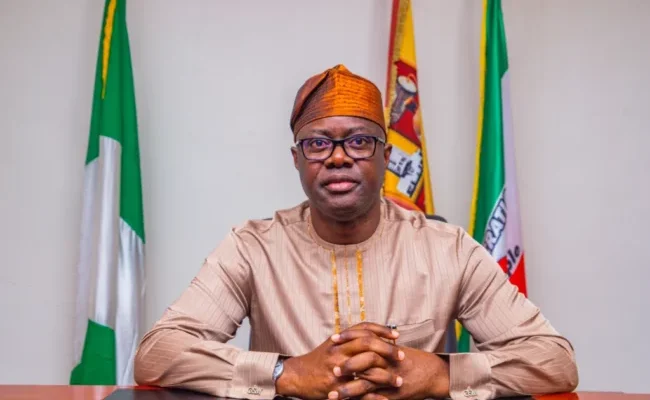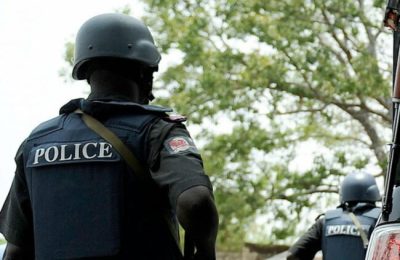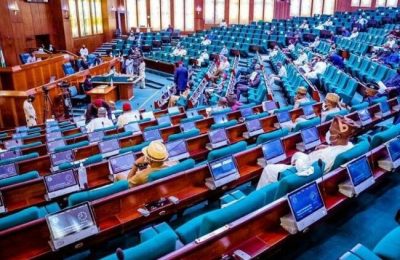Oyo state government has set annual target of N164.8bn to finance the proposed N678bn Appropriation Bill for 2025 fiscal year.
The State Commissioner for Budget and Economic Planning, Professor Musibau Deen Babatunde made this known in his analysis of the Appropriation Bill in Ibadan.
He said the 2025 budget is expected to be financed through a mix of internally generated revenue (IGR), federal allocations, grants, loans, and VAT among others.

IGR, according to him is projected to contribute a significant rise from the previous fiscal year, with the government aiming to expand its revenue base by improving tax collection systems and formalizing the informal sector while also attracting direct local and foreign investments as a result of its aggressive infrastructural development.
“Analysis of the state’s proposed 2025 revenue projection provides for IGR of ₦164 826 470 711 representing 24.30 percent, Federal Allocation was projected at ₦130 000 000 000 representing 19.17 percent, Value Added Tax (VAT) was put at ₦144 000 000 000 representing 21.23 percent, Total Recurrent Revenue; ₦554 024 752 874 (81.7 percent), Grants; ₦10 019 037 214 (1.4 percent), and Capital Receipts ₦114 042 977 244 (16.8 percent).
Breakdown of the state’s proposed expenditure for the 2025 fiscal year include Personnel cost; ₦172.39 billion (25.4 percent), overhead costs; ₦71.96 billion (10.6 percent), CRFC; ₦90.69 billion (13.3 percent), Total Recurrent Expenditure; ₦335.05 billion (49.4 percent), and Total Capital Expenditure; ₦343 billion (50.5 percent).

Sectoral Allocations
Infrastructure: ₦152 billion (22.4 percent) has been allocated for several earmarked for infrastructure including ongoing and new projects as well as urban development.
Education: ₦145 billion (21 percent) has been earmarked to enhance the quality of education in the state, with a focus on building new schools, upgrading existing infrastructure, and providing modern teaching materials.
Healthcare: The government has allocated ₦59.4 billion (8.7 percent) to the health sector, focusing on the expansion of primary healthcare facilities, especially in rural areas, and the upgrading of teaching hospitals in the state.
Agriculture: With agriculture being a major contributor to the state’s economy, ₦18.7 billion (2.7 percent) will be invested in modernizing farming techniques, boosting food production, and providing incentives for agro-based industries with expectations that the investment will create thousands of jobs in both the farming and agribusiness sectors, while a sum of ₦302 billion (44.58 percent) was earmarked for others.
Security: ₦10 billion (3%) will be allocated to strengthening security infrastructure, including the purchase of modern surveillance equipment and the establishment of more local security networks to complement federal and state police efforts.
ALSO READ: Gov Lawal pledges support for Zamfara varsity
In line with the 2025 budget, Professor Babatunde disclosed that the Oyo state government has introduced a medium-term fiscal strategy aimed at diversifying its revenue base, reducing dependence on federal allocations, and improving fiscal discipline.
He added that the state plans to prioritize key infrastructural projects, educational reforms, security, and healthcare improvements in the next three years (2025–2027).
The commissioner, who noted that Governor Makinde is keen on ensuring the sustainability of the state’s fiscal policies, emphasized that the government would continue to focus on strategic partnerships with the private sector and development agencies.
He noted that these collaborations would be crucial in stabilizing the state’s economy.
Prof. Babatunde said that the highlights of the budget are testament to the fiscal transparency and accountability of the Governor ‘Seyi Makinde-led administration adding that the analysis was necessary to make adequate projections so that the state would not have an under-performed or over-performed budget.
According to the commissioner, the state government is going to implement a budget that will bring multiplier effects into the economy and also bring substantial returns to the economy, culminating into improved welfare for residents of the state stressing that the government used the bottom-top approach, which ensures inclusiveness, to prepare the budget, as relevant stakeholders across the seven geopolitical zones were consulted and the interests of the people fully captured.
“What are the expectations that the people of Oyo State should have on the 2025 Budget, when approved? Improvement of their welfare, more infrastructure, increased support for business owners, farmers and all segments of the society.
“We are looking at the fact that the people of Oyo State should expect an improvement in their welfare in the year 2025, because we don’t just want to implement a budget that will not bring about multiplier effects into the economy.
“We want to have a budget that will bring about substantial returns to the economy of Oyo State, which will have direct linkage into the welfare of our people.
“Already, at the office of SOCU, under the office of Ministry of Budget and Economic Planning, we have been able to get the nod of the National Social Register to deepen and update our social register. It is ongoing as I speak to you.
“We can have a good leverage on the register so that by the time we are having our intervention to the people; it is those that really need the relief materials and packages that will get access to it.
“So, we have taken up a holistic framework in respect of the 2025 budget estimates.
“I was at the BCOS recently where somebody asked a question on whether the SMEs loans enjoyed by some people in the state under SAfER would continue.
“I mentioned that the second phase is coming up in 2025. We realised the fact that more people actually wanted access to that loan.
“We have taken into consideration the number of people that we can support in 2025 such that somebody roasting plantain on the road will have access to the loan.
“We have tried to streamline what the requirements will be such that they are not cumbersome. The person selling pepper too will have access to it.
“When they have enough liquidity, their productivity will increase and then they can have high turn-over that can be used to maintain their welfare in the particular process.
“In the infrastructure sector, look at the ongoing rehabilitation of inner roads in Ibadan.
“Ease of movement and reduction in the number of man-hours spent on transportation on intra and inter-town roads in the state are being addressed and more of them will come, as the rehabilitations will be extended to other zones. These things have implications on the ease of doing business in Oyo State.
“In the wisdom of Governor Makinde, having realised the fact that he wants adequacy in terms of project completion, he established the Oyo State Project Monitoring and Performance Agency.
“Through this agency, we can monitor projects, check out the quality of those projects and the timely completion of those projects.
“We also have the Monitoring and Evaluation Department in the Ministry of Budget and Economic Planning. People have been able to see how exactly we have been having our M and E in our budget implementation.”
Speaking on the key components of the 2025 Budget proposal, Babatunde stated that as part of measures to improve the welfare of residents and stabilise them economically amid the growing hardship in the country, the state government will implement the second phase of the Sustainable Action for Economic Recovery (SAfER), an initiative introduced by Governor Makinde to cushion the effects of economic hardship on Oyo State residents.
He assured that the government will not increase the taxes but go after tax defaulters and also bring more people into the tax net with a view to improving revenue generation.
He added that measures have also been put in place to monitor, control and enforce spending limits to ensure a sound budgetary system that will include aggregate fiscal discipline, efficiency and effective implementation of the budget.
Present at the budget analysis were the Commissioner for Information and Orientation, Prince Dotun Oyelade; Commissioner for Establishment and Training, Hon. Segun Olayiwola; Executive Assistant to the Governor on Budget, Alhaji Gafar Bello; Special Adviser, Budget and Economic Planning, Hon. Simeon Oyeleke; and Senior Special Assistant on Economic Planning, Mr Kehinde Ogunsanya.
Others were the Permanent Secretary of the Ministry of Budget and Planning, Directors, representative of the Development Agenda for Western Nigeria (DAWN) Commission and representatives of Civil Society Organisations.







